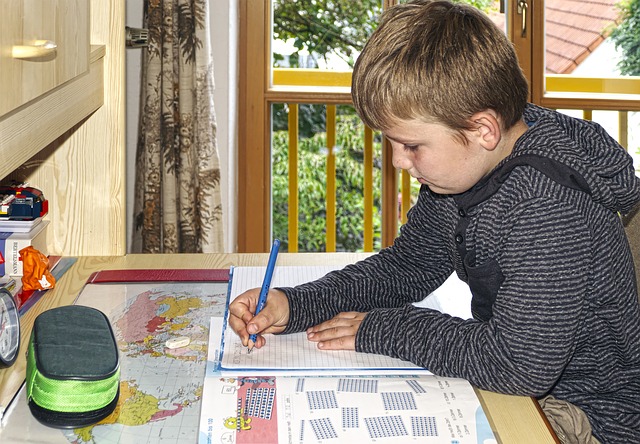Each year, there are a growing number of families that are opting to homeschool their children. There have been many new curricula introduced to make this easier for families to do. Read on to learn a few of the best tips for homeschooling. If you home school your children, it is important that they still get playtime. Just because they are getting schooled at home does not mean they need to be inside all of the time. Once they are done with their daily schooling and work, allow them to go outside and play for a little while.
Tips to consider:
- If you plan to home school your child or children, always remember that books and the chosen curricula are just the basics. The best learning experience within the home is one that incorporates materials and concepts from outside the home and the curriculum. If you cannot find a single curricula that meets your needs, don’t be afraid to use multiple sources.
- When you homeschool your kids, many financial hurdles will have to be overcome. Can you afford for one parent to stay home and not work? How will you pay for all the supplies, lesson material and outings necessary to provide a great learning environment? Think carefully before you engage down this path.
- Just because your kids are the only ones in your neighborhood to be homeschooled doesn’t mean that you’re alone. Not only can you find other homeschooling parents in your city, but you’ll find many groups online who share your philosophy that education begins at home. There are conferences, clubs and even support groups waiting for you to use their resources. There are even cruised! If you take the time to search, you’ll find a treasure trove lies before you.
- Don’t forget the ‘social’ side of school. A child gains much more from school than simply academics. Make sure that your child is involved in activities that a school offers such as sports and music. This can be achieved by meeting other homeschool parents and organizing extra curricular activities at the end of the school day or the weekend.
Need Help?
- The goals you set for your homeschool classroom need to be easy to measure. Write down exactly what you want your child to know at the end of each day, week, month and lesson plan. For example, “I would like John to be able to multiply up to ten” is a great short-term goal. “I would like John to know all about World War II” is a long-term goal. Both should come with positive reinforcement when achieved.
- The Internet is an amazing homeschooling resource. There are numerous resources to be found on the Internet. Many are free, very cheap or require a nominal subscription. Take advantage on any trial offers and weigh each resource on its merits. Homeschooling forums will also offer you unparalleled advice when you are facing challenges with homeschooling.
- Determine which approach to homeschooling you will follow. You may decide to follow a traditional curriculum, setting up a “classroom”� within your home. On the other hand, you might decide to “unschool,”� allowing your kids to play a large role in defining their educations. Take your kids’ learning styles and personalities into consideration when choosing an approach.
Benefits of Home Schooling:
- You must take the time to learn the state laws and regulations for homeschooling where you are located. Look to the HSLDA website to discover what homeschooling laws are in effect in your area. It is a good idea to join a homeschooling organization, as such an organization that will be able to offer you support in the event that you are investigated by your state’s Board of Education or the CPS. The information and guidance that you receive will be well worth the investment.
- Life skills are just as important as academic studies. Try to keep a balance of both academics and life skills in your classroom. While most people understand the academic portion, they may not fully grasp the important nature of life skills like driving or gardening. You can teach these things along with academics. For example, if you want to teach your child about percentages, you can teach him some financial planning at the same time by explaining how bank accounts work.
Final Verdict:
You can teach your children from your home. It is less complicated than you may have thought. Put what you have learned from this article to good use and begin teaching your children today. You will feel accomplished and proud when your children finish each class, grade, and school altogether.
